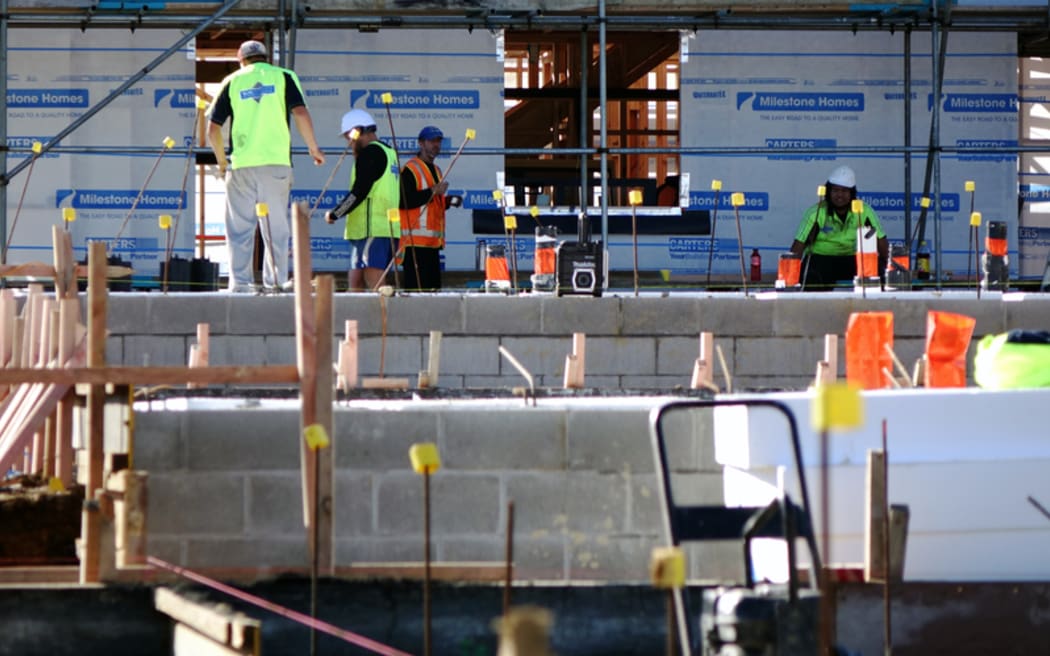 Building greener houses will benefit people’s health, their communities and slash climate pollution, the Green Building Council says. Photo: RNZ / Kim Baker Wilson
Building greener houses will benefit people’s health, their communities and slash climate pollution, the Green Building Council says. Photo: RNZ / Kim Baker Wilson
New Zealand could receive a multi-billion dollar economic boost if new homes and buildings are built greener starting from 2025, a new report claims.
The report, written by economic analysts Business and Economic Research Limited (BERL), found building new homes and large offices with significantly less carbon emissions, would add $147 billion to the country’s gross domestic product (GDP) by 2050.
The study was commissioned by the Green Building Council.
Its chief executive Andrew Eagles said the GDP benefit would come from more economic activity due to building to a higher quality, and the additional jobs that would go into creating those homes and offices.
“Aotearoa is really going to see a lot of benefits for health, for whānau, for communities and a massive slashing of climate pollution as well.”
The study looked at two scenarios. The first “more ambitious scenario” which would provide the $147bn economic benefit stated above, aligned with the government’s Building for Climate Change programme, Eagles said.
This scenario assumed current building code compliant houses would be built in 2023 and 2024, and then houses and offices would be low emission from 2025 to 2034.
The scenario then assumed that from 2035 to 2050, houses and offices would be built near zero emissions.
The other “less ambitious scenario” assumed that New Zealand would have a late change to building code. It assumed low emission houses from 2030 to 2039, and near zero emission houses from 2040 to 2050.
The report said the more ambitious scenario would also support an average of 46,000 full time jobs every year between 2025 and 2050.
“Building these healthier homes and buildings will also create tens of thousands of jobs, ensuring there will be work for New Zealanders currently employed in fossil fuel industries, helping a just transition as the country moves away from industries such as oil, gas and coal,” Eagles said.
He acknowledged there may be a greater initial capital cost involved in building greener homes and offices, but said it would be outweighed by long term benefits.

Leave A Comment